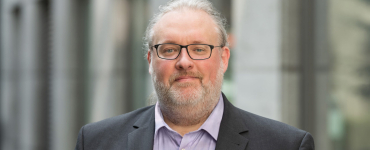The German Bundestag is currently debating two draft laws that would grant extensive powers to the German Federal Criminal Police Office (BKA), the federal police and the German Federal Office for Migration and Refugees (BAMF). These drafts have already been referred to the Committee on Internal Affairs and are to be deliberated there immediately. eco – Association of the Internet Industry urges caution in implementing the proposed measures: Klaus Landefeld, Member of the eco Board, emphasises the need for a balanced approach: “Security concerns are understandable, especially after the recent attacks. However, new competencies for security authorities must always be accompanied by effective safeguards. This is the only way to maintain society’s trust in modern technologies, especially AI.”
Broad socio-political debate needed
The draft legislation foresees that the German Federal Criminal Police Office (BKA) and the federal police will be able to compare biometric data such as facial and voice profiles with publicly accessible personal data from the Internet. The analysis of this data using AI technologies will also be permitted. “These far-reaching powers pose risks because they go beyond the investigation of suspects and could lead to more comprehensive surveillance,” warns Landefeld. The unclear definition of “publicly accessible data from the Internet” is a particular concern. “Concerns regarding profiling when matching databases and analysis using AI must be taken seriously. It must be ensured that no data from protected or private areas is collected,” Landefeld continues. The eco Association is calling for precise regulation to avoid discrimination and prevent abuse. In addition, the social debate on these measures must be conducted more comprehensively: “The project affects the fundamental rights of the entire population and does not exactly strengthen trust in the use of technology and the Internet. The time frame for the current debate is not sufficient to adequately discuss these complex issues. The continued protection of civil rights in the digital realm must not be watered down here overnight,” concludes Landefeld.




